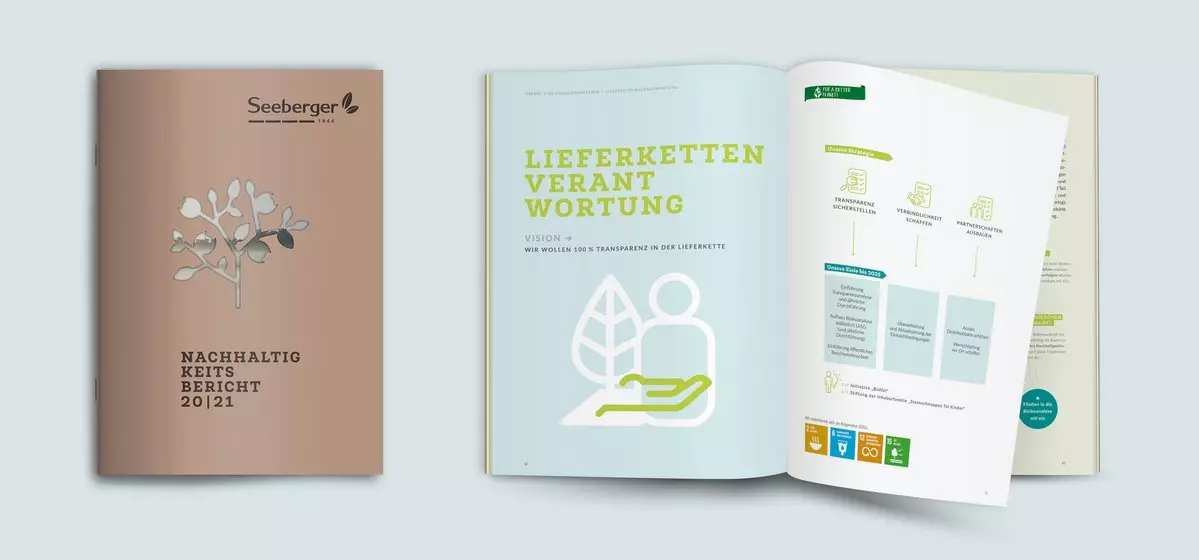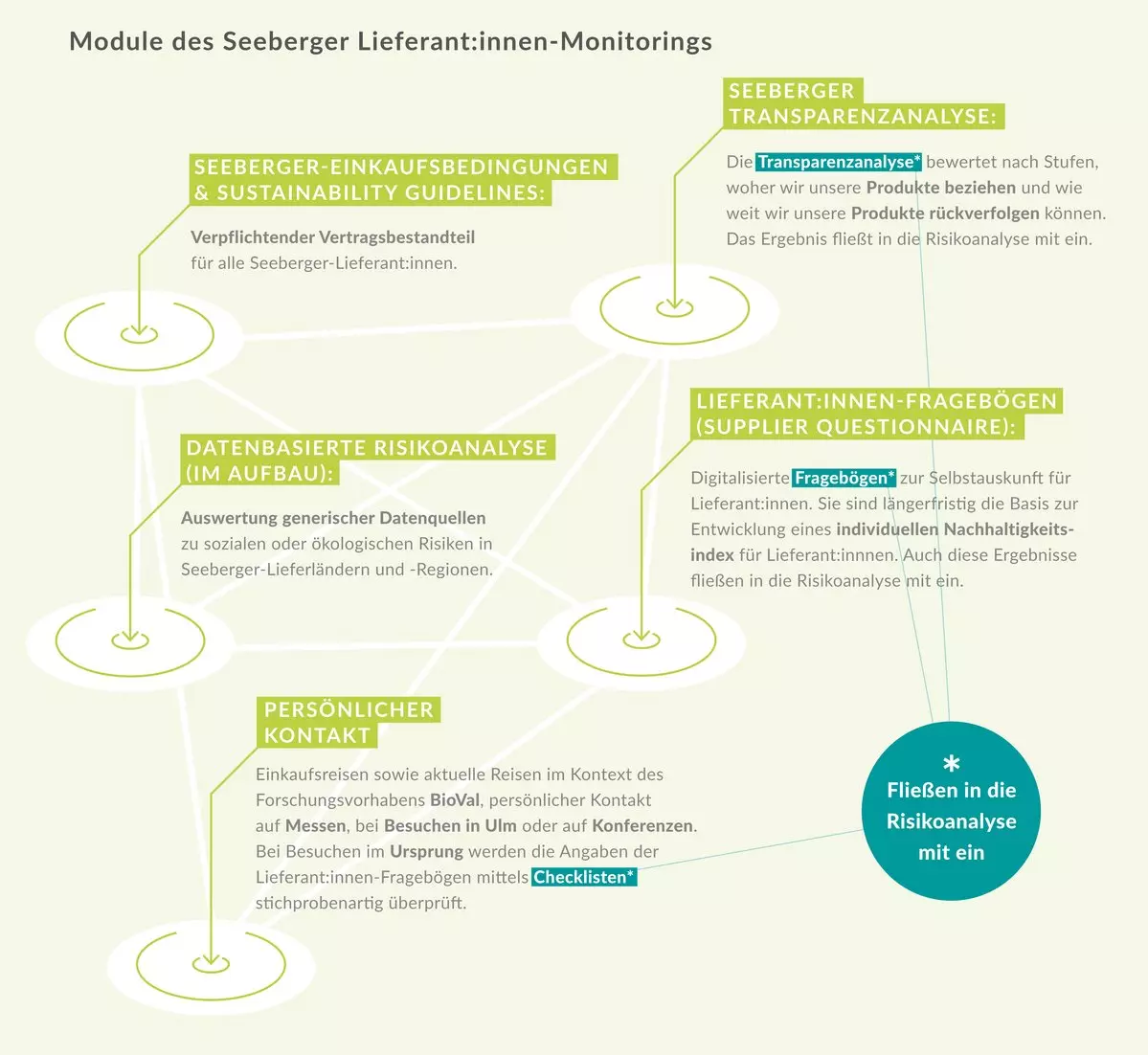Seeberger has long been committed to taking responsibility along its own value chain. The family-owned company therefore sees the requirements of the new Supply Chain Duty of Care Act (LkSG) as both a challenge and an opportunity. Although not legally obliged to do so, Seeberger is already working on implementing the law’s human rights and environmental due diligence obligations. Because fair supply partnerships and respect for people and nature in the countries of origin of its products are a matter of course for the company.
“We see the LkSG as an important step in the right direction, namely towards greater corporate accountability for every single step from the cultivation of raw materials to the manufacture of products to the supermarket shelf,” says Seeberger Managing Director Ralph Beranek. “We at Seeberger have had this requirement and a suitable supplier monitoring system for a long time. The LkSG does not yet apply to companies of our size. Nevertheless, we have prepared a concept to implement its requirements. After all, the new law provides us with important impetus for our sustainability strategy and our vision: to achieve 100 percent transparency in the supply chain.”
In the newly published fifth sustainability report for the period 2020/2021, Seeberger provides information on how the company is tackling the LkSG challenge and how the topic of supply chain responsibility fits into the comprehensive sustainability strategy “Natural World” with the other fields of action of circular economy, climate protection and community. The report was again prepared in accordance with the strict guidelines of the Global Reporting Initiative (GRI). Find out more: Seeberger Sustainability Report (reporting period 2020-2021)

“Our supply chains today are highly complex, while at the same time our customers’ demands are increasing,” explains Beranek. “You want to be sure that our natural products are produced in harmony with human rights and environmental protection. And we think that’s a good thing! Because for us, what makes Seeberger quality so special is that we keep a close eye on every nut, every fruit and every coffee bean on its journey from its origin to Ulm.” This is the principle we have been working to for over 175 years.
The Seeberger concept: On the way to 100 percent transparency in the supply chain
Even though the company with its 800 employees is not legally obliged to do so, Seeberger is taking the LkSG as an opportunity to review and restructure its existing activities.
“Based on the LkSG requirements, we have sharpened our sustainability guidelines and optimized our supplier monitoring. We want to know exactly under what conditions our ingredients are grown. The way to achieve this is through greater transparency, more commitment in our collaboration with suppliers in the countries of origin of our natural products and the expansion of our long-standing partnerships.”
Ralph Beranek, Managing Director Seeberger
At Seeberger, LkSG-compliant supplier monitoring is based on 3 pillars:
1) Terms and conditions of purchase: The contractual agreements already include sustainability requirements that must be guaranteed by the suppliers.
2) Transparency analysis: The focus here is on the question of the stage in the supply chain to which Seeberger can currently trace the origin of each individual raw material: Is this only possible up to the middleman or even up to the plantation? Knowing the origin of a raw material is the central prerequisite for becoming aware of human rights or environmental violations in the first place.
3) Risk analysis: To assess the potential risks associated with a raw material, Seeberger combines research into publicly available information, regular standardized surveys of suppliers and regular trips to the countries of origin of the raw materials. There, the buyers get their own direct impression.
The results of these analyses serve as the basis for targeted measures with which Seeberger enters into an exchange with supply partners and ensures the sustainable sourcing of raw materials. Seeberger is currently in the test phase with this concept. The corresponding measures have so far been tested with around ten suppliers in order to incorporate optimizations. The company is currently preparing the formal requirements of the LkSG, such as the declaration of principles on human rights and environmental protection, a whistleblower tool on the Group website and regular public reporting.

The LkSG at a glance:
The German government’s Supply Chain Due Diligence Act obliges companies to comply with human rights and environmental due diligence obligations in their supply chains. It will apply from January 1, 2023 for companies with 3,000 employees and from 2024 with 1,000 employees.
The requirements of the LkSG are based on five so-called due diligence obligations for companies: Declaration of principles on human rights and environmental protection, risk analysis, preventive and remedial measures, complaints procedures, documentation and reporting obligations.
Goals: Prevent child and forced labor, support fair trade and pay fair wages, promote agricultural value chains, ban substances that are hazardous to people and the environment.
More information about the LkSG: Learn more
